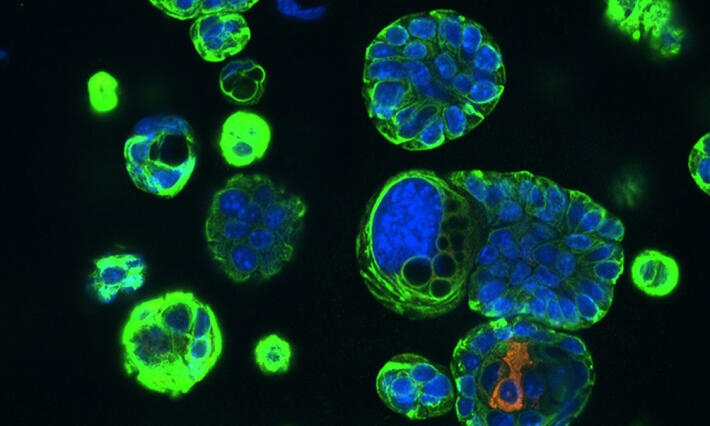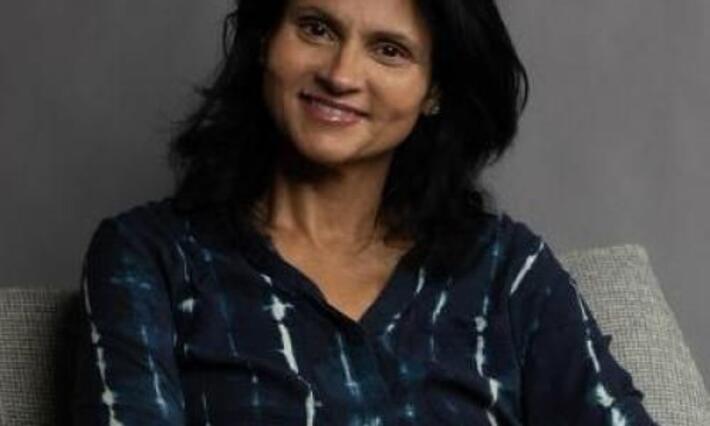A large group of Duke Cancer Institute investigators led by researcher Gayathri Devi, PhD, has been awarded a three-year $1.6 million U.S. Department of Defense Breakthrough Level 2 grant for research directed at investigating the mechanisms underlying inflammatory breast cancer metastasis. Level 2 Breakthrough Awards fund projects that are already supported by preliminary data with the potential to make significant advancements in clinical translation.
“Inflammatory breast cancer research is, in general, rarely funded, so this grant is timely and exciting for our IBC consortium,” said Devi, founder and program director for the Duke Consortium for Inflammatory Breast Cancer — DCI’s home, for the past six years, for inflammatory breast cancer research.
Inflammatory breast cancer (IBC) is a rare and understudied cancer — accounting for only one to 5% of all breast cancer cases. However, it remains one of the deadliest cancers, accounting for 10% of all breast cancer deaths or 4,200 people each year, a dramatic statistic considering the low incidence of IBC cases.
It differs from other types of breast cancer in its symptoms, behavior, treatment and outlook.
First, unlike other breast cancers, IBC patients have a unique and often very painful presentation — the inflamed swollen breast.
“This appearance derives from the cancer cells growing not as solid masses as in other types of breast cancers, but as small highly mobile tumor cell clusters called lymphatic emboli, which invade and block lymph vessels in the skin of the breast,” explained Devi. “It’s usually not detectable by a breast self-exam or by a mammogram and is often misdiagnosed as an infection. Naturally, this causes a delay in treatment.”
Inflammatory breast cancer tends to be more aggressive — growing and spreading much more quickly than more common types of breast cancer. In fact, in one of every three cases it has already spread to distant parts of the body by the time it’s diagnosed.
According to the American Cancer Society, the five-year relative survival rate for a patient with metastatic IBC is only 19% as compared to 56% when it’s local or regional at diagnosis.
Once IBC is diagnosed, treatment can be a challenge. The fact that IBC shares standard molecular features (ER/PR/HER2) with other breast cancers — for which there are already approved drugs on the market — has hindered development of new treatment approaches. Because of the way IBC behaves, these drugs are not as effective and currently there are no approved IBC-specific treatments.
The environment around IBC clusters often contains immune cells, like macrophages and various molecules elaborated by them, that collectively create a stress on the tumor cells called chronic inflammation, which, rather than eliminating the cancer, seemingly drives it to grow more aggressively.
This chronic inflammation may be genetically determined (e.g., some people have gene variants associated with greater production of inflammatory molecules), but it has also been linked in epidemiologic studies to modifiable characteristics like obesity, early age at first pregnancy, and lack of breastfeeding.







